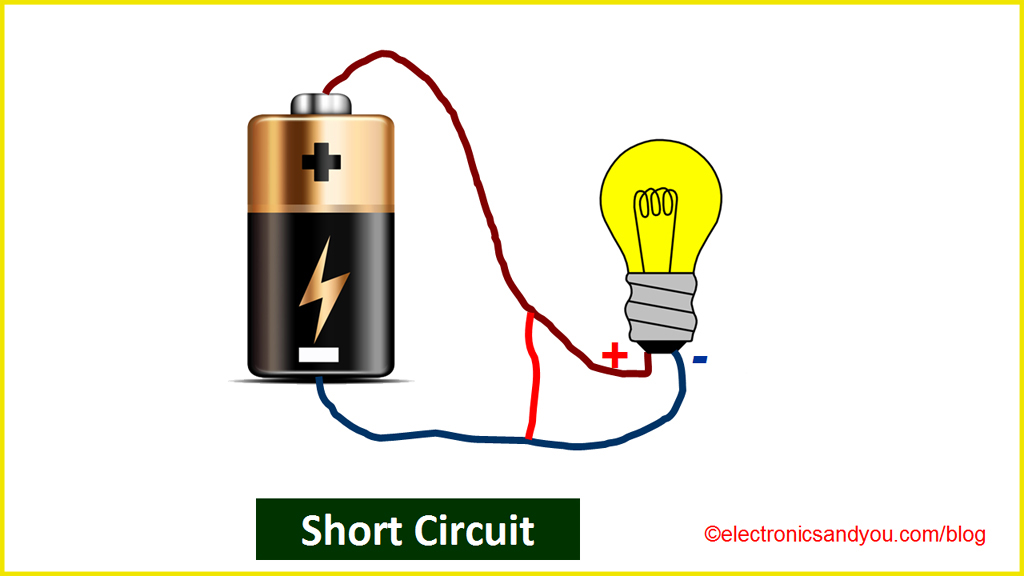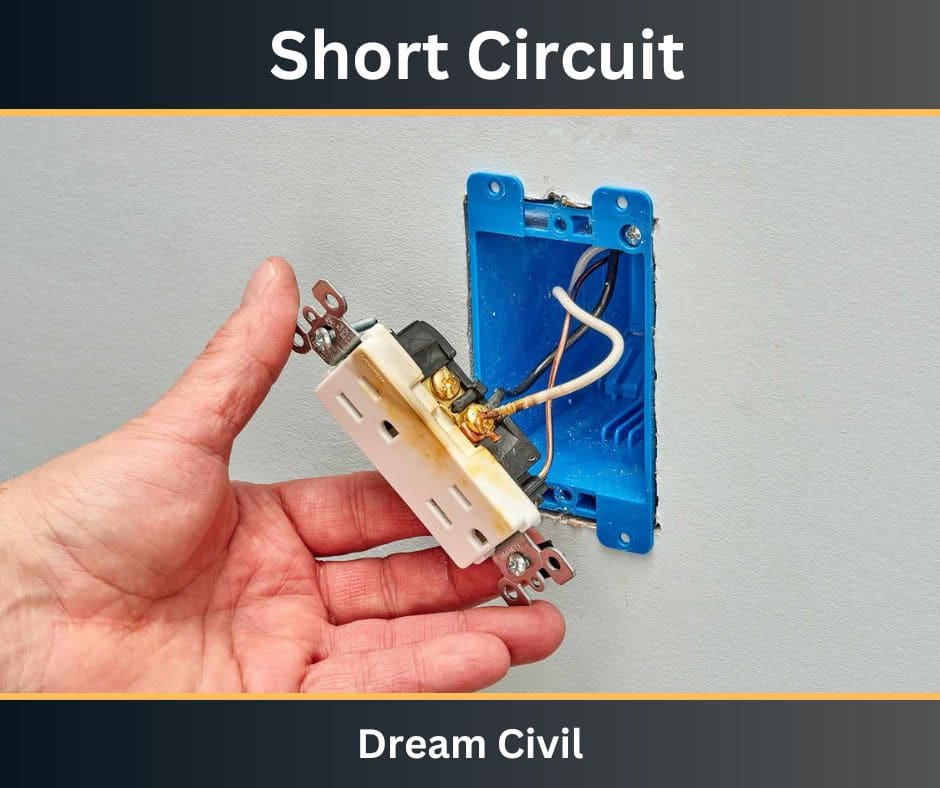Wonderful Tips About Is Short Circuit OK For Kids

What Is Short Circuit In Simple Words
Short Circuits and Little Sparks
1. Understanding the Basics
So, you're wondering about short circuits and kids. It's a valid concern! Electrical safety isn't exactly the most riveting topic at the playground, but it's definitely one of the most crucial. Think of a short circuit like a rebellious detour in the electrical system. Instead of electricity flowing smoothly through its designated path (like a diligent little worker ant), it finds a quicker, easier route. This shortcut causes a surge of current, which can lead to overheating and, well, potentially some zappy surprises.
Now, before you picture your home as a ticking electrical time bomb, it's important to know that modern homes have safety measures in place, like circuit breakers and fuses. These are the superheroes of your electrical system, ready to leap into action and cut off the power when a short circuit occurs. They're like the responsible chaperones at the dance, making sure things don't get too wild.
However, even with these safety nets, kids need to understand the basics. Just like we teach them not to run into the street or touch a hot stove, we need to educate them about electrical hazards. Remember that one time you tried to fix something without unplugging it first? Yeah, let's try to avoid repeating those stories with our little ones involved.
Think of it this way: teaching kids about electrical safety is like teaching them to swim. You don't want them to be afraid of the water, but you definitely want them to respect its power. Understanding the potential dangers is the first step in keeping them safe and sound.
2. Identifying Potential Hazards
3. Spotting Trouble Before it Strikes
Okay, so we know what a short circuit is in theory, but how do we spot potential hazards in the real world? Well, start by looking around your home with a critical eye. Are there any frayed cords dangling precariously? Outlets overloaded with too many plugs? These are like flashing neon signs screaming "potential trouble!"
Kids, being the curious little explorers they are, might be tempted to poke around with things they shouldn't. Loose wires, damaged appliances, or even outlets that seem to be sparking are all huge no-nos. It's crucial to teach them that electricity is powerful and that certain things are best left untouched. Think of it as setting boundaries, but with a zap-tastic twist.
Water and electricity are a particularly dangerous combination. So, bath time with electrical devices? Definitely a recipe for disaster. Make sure all electrical appliances are kept far away from sinks, tubs, and showers. We want squeaky clean kids, not electrically charged ones!
Also, keep an eye out for overloaded extension cords. They are not designed to handle a huge amount of power, so plugging too many devices into one can cause them to overheat. It's like trying to squeeze an elephant into a tiny car — something's gotta give!

Practical Safety Tips for Parents
4. Creating an Electrically Safe Environment
Alright, time for some practical advice! One of the best ways to protect your kids from electrical hazards is to create a safe environment in the first place. Childproof outlets are a must, especially when they're young and curious. They're like little sentinels, guarding against curious fingers and preventing accidental shocks. They are easy to install and can provide a huge peace of mind.
Teach your kids about the dangers of playing near power lines, both indoors and outdoors. Kites, balloons, and even tree climbing near power lines can be incredibly dangerous. Make sure they understand the importance of staying away and respecting the power of electricity.
Regularly inspect your electrical cords and appliances for any signs of damage. Frayed cords, loose connections, or cracked casings should be repaired or replaced immediately. It's like giving your electrical system a regular check-up to catch any potential problems before they turn into big ones.
Consider installing Ground Fault Circuit Interrupters (GFCIs) in areas where water is present, such as bathrooms and kitchens. GFCIs are super-sensitive circuit breakers that can detect even the smallest electrical leaks and quickly shut off the power. They're like the ultimate safety net, providing an extra layer of protection against electrical shocks.

Electrical Short Circuit
Educating Children About Electrical Safety
5. Making Learning Fun and Engaging
Okay, let's face it, lecturing kids about electrical safety isn't exactly going to be a blockbuster movie. But that doesn't mean we can't make learning fun and engaging! Use age-appropriate language and examples to explain the dangers of electricity. Show them pictures or videos of what can happen when things go wrong. Sometimes, a little shock value (pun intended!) can be effective.
Turn safety lessons into a game! Create a scavenger hunt where they have to identify potential electrical hazards around the house. Reward them for finding the hazards and explaining why they're dangerous. It's like turning learning into an adventure, with a prize at the end!
Use storytelling to illustrate the importance of electrical safety. Share stories about real-life incidents or create fictional scenarios that highlight the dangers of electricity. Stories can be a powerful tool for teaching kids valuable lessons without sounding preachy or boring. Get creative and even put on a little show to engage their imagination.
Encourage them to ask questions and share their concerns about electricity. Open communication is key to fostering a culture of safety. Let them know that it's okay to be curious and that you're always there to answer their questions and address their fears. Also remember to tailor the lessons to their age. A 5-year-old will need a different explanation than a 12-year-old.

Open Circuit Vs Short Full Explanation Wira Electrical
Responding to Electrical Emergencies
6. Knowing What to Do in a Crisis
Even with the best precautions, electrical emergencies can still happen. It's crucial to teach your kids what to do in such situations. First and foremost, they should know to call for help immediately. Make sure they know how to dial emergency services (911 in many areas) and what information to provide.
Teach them never to touch someone who is in contact with electricity. Instead, they should use a non-conductive object, such as a wooden broom handle or a rubber mat, to safely separate the person from the electrical source. It's like playing a real-life superhero, but with extra caution and a whole lot of common sense.
If there's a fire, teach them to evacuate the building immediately and to meet at a designated safe spot. Fire safety is just as important as electrical safety, and it's essential that kids know what to do in case of a fire emergency.
Practice emergency drills regularly to reinforce these lessons. Role-playing different scenarios can help kids remember what to do in a real-life crisis. It's like preparing them for a big performance, but instead of applause, they'll be saving lives!

Frequently Asked Questions (FAQs)
7. Addressing Common Concerns
Q: Is it safe for my child to use a hairdryer in the bathroom?
A: Only if the bathroom has a working GFCI outlet. Otherwise, no! Water and electricity are a dangerous combination, and even a small electrical leak can be fatal. It's better to be safe than sorry!
Q: My child wants to take apart an old appliance to see how it works. Is that okay?
A: Absolutely not! Disassembling electrical appliances can be extremely dangerous, especially if the appliance is still plugged in. There could be residual electricity and other components that could cause harm. Maybe stick to LEGOs for now.
Q: What should I do if I see a frayed electrical cord in my home?
A: Replace it immediately! Frayed cords are a fire hazard and can also cause electrical shocks. Don't try to repair it yourself unless you're a qualified electrician. Safety first!
Q: How often should I check my smoke detectors?
A: You should check your smoke detectors monthly and replace the batteries at least once a year, even if they seem to be working fine. Think of it as a regular health checkup for your home's early warning system.
